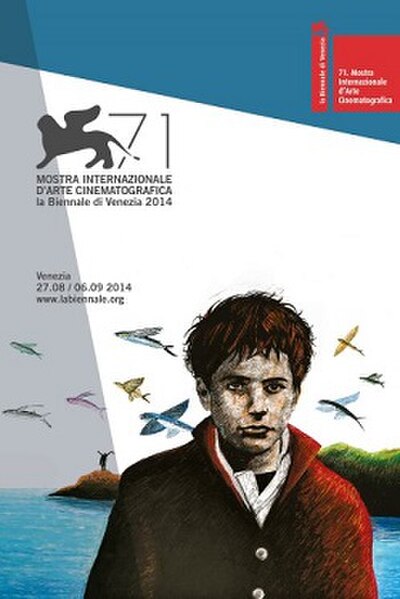71st Venice International Film Festival
The 71st annual Venice International Film Festival took place in Venice, Italy between 27 August to 6 September 2014. The festival opened with Alejandro G. Iñárritu's film Birdman, and closed with Ann Hui's drama film The Golden Era. Italian actress Luisa Ranieri hosted the opening and closing nights of the festival. The Swedish film A Pigeon Sat on a Branch Reflecting on Existence, directed by Roy Andersson, won the Golden Lion, and Joshua Oppenheimer's The Look of Silence won the Grand Jury Prize.
Festival poster
Birdman, stylized as BİRDMAN or , is a 2014 American dark comedy-drama film directed by Alejandro González Iñárritu. The film stars Michael Keaton as a washed-up Hollywood actor, best known for playing a superhero named Birdman, and follows the struggles he faces while trying to make a comeback by writing, directing, and starring in a Broadway adaptation of Raymond Carver's short story "What We Talk About When We Talk About Love". The film's supporting cast includes Zach Galifianakis, Edward Norton, Andrea Riseborough, Amy Ryan, Emma Stone, and Naomi Watts.
Michael Keaton was Iñárritu's first choice to play Riggan Thomson.
Michael Keaton rehearsing an action-sequence of the film.
St. James Theatre and Kaufman Astoria Studios in New York were used to film the stage and backstage scenes of Birdman, respectively.
Jazz drummer Antonio Sánchez composed and recorded the score for the film.





